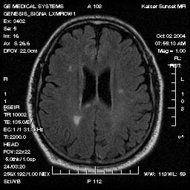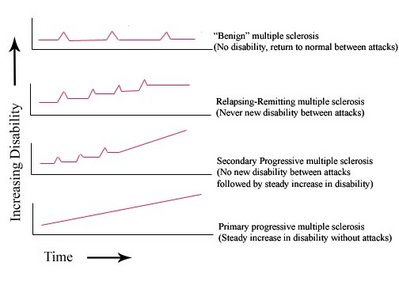Yes the title is correct! It isn't the usual "Doctors search for a cure" scenario we read and hear every day in the media. There is a cure for a disease orthodox medicine (the neurologists) deny there is a cure for. However, the many hundreds of patients recovering on the Klenner treatment belies this claim. How is this explained? Very easily and it isn't a palatable conclusion to arrive at.
In the past when a patient was diagnosed with MS, the neurologist had a patient FOR LIFE. When a patient recovers on the Klenner treatment he doesn't go to the neurologist any more! This was demonstrated very clearly to me 30 years ago when I recovered from MS after seeing Dr. F.R. Klenner in Reidsville, North Carolina. My GP and neurologist ridiculed me for going to see Klenner (whom they described as a quack!) When I began to recover the neurologist didn't want to see me anymore! Just a remission, he growled. Some remission--30 years later and still remissioning! I changed GPs after I found he had refused to help another patient with the Klenner treatment. The GP I have now is orthodox and doesn't offer the treatment to MS patients, but he will prescribe it IF ASKED. I believe this is the case with many GPs who toe the line because they don't want to "lock horns" with the neurologists--"The Old Boy Network."
I recently had a call from a patient in New Jersey who reported their family doctor wouldn't help them with the treatment. I advised them to change doctors. They did so and phoned back to tell me their new doctor had no hesitation in helping them.
GPs refusing to help were fairly common 25 years ago when I began working to make this treatment known and available. It is very rare now to hear of a doctor who won't help a patient. I have had patients tell me their doctors offered to write a prescription for any patient whose doctor wouldn't help them. There are many caring and compassionate doctors now who realise it is time to break the unhealthy bond which has bound them so tightly for so long to drug therapy which doesn't work for so many diseases, including MS.
However, I still advise all MS patients on the treatment to tell all other MS patients to get all the information on the Klenner treatment. They need information and encouragement because they are continually being told by their neurologist "there is no cure for this disease."
As my friend Wayne Martin correctly points out in the TLfDP Jan/05, the protocol I followed to recover from MS wasn't the complete protocol Dr. Klenner lists in his Medical Paper published in the TLfDP Issue #203 and #204 June and July, 2000. However, this did not delay or slow down the recovery process for me, in fact it may have hastened my recovery.
[ILLUSTRATION OMITTED]
I will explain why: It will be recalled by readers that Dr. H.T.A. Mount, MD in his Medical Paper (TLfDP Issue #199/200 Feb./March 2000) was using thiamin intravenously and liver extract intramuscularly and nothing else! No oral vitamins or special diet and he was reversing the disease. I talked with a recovered patient of Dr. Mount's in 1978 following a CBC television interview I had given on my recovery. He was surprised to learn Dr. Klenner was also curing MS in Reidsville, North Carolina. These two doctors were unaware of each other. The drawback to Dr Mount's treatment was the need to go to the doctor every 7 to 10 days for the injections. Dr. Klenner taught his patients to give their own daily injection which was a big advantage for the patient.
Dr. Klenner was using a very wide array of oral vitamins and metabolites and a high protein diet. I began his full protocol while in Reidsville and ran into problems right away. (1) Niacin taken in the dose he gave produced gastric irritation with me and in most patients, and when taken daily, the body builds a tolerance for it and the desired flush doesn't occur. The dramatic flush is very important and can be accomplished in ALL patients with a dosage of 100 to 300mg before breakfast twice weekly with no gastric irritation; (2) The large oral doses of B1 (an acid) also causes gastric problems and isn't well absorbed (as Dr. Mount pointed out); (3) B6 (an acid) also caused problems with my digestion. I told Dr. Klenner of this and he suggested I take a B-100 tablet daily and the vitamins C and E. His advice was "take what your digestion will handle but don't miss the daily injection and the high protein diet."
When a patient's digestion is compromised by the acid vitamins he can't utilize the benefits of a good diet. After this adaptation I began to recover very quickly.
Dr. Klenner was very impressed with my progress and asked if he could have patients who needed encouragement phone me. One patient whom he had call was a nurse who, because of her proximity to doctors (neurologists) didn't believe Klenner's treatment could work. I had several conversations with her and she eventually began treatment.
As my work with increasing numbers of patients began, I realized
The protocol I followed is titled "Dr. F.R. Klenner's Protocol for MS" published in the TLfDP Issue #238, May/03, page 102.
As Wayne Martin mentioned, I also encourage patients to add refined high-dose fish oil daily to their diet in a 6 to 12 gram dosage (1 tbls). This will add an additional $50 monthly to the protocol and I feel this is of great benefit.
The success we are having wouldn't have been possible without the complete and whole-hearted cooperation and support of Dr. Collin of this journal and Dr. Hoffer of the OMJ--"They have boldly walked where angels feared to tread."
This disease doesn't spare doctors or their families either. Some of the first to contact me 25 years ago were doctors with MS in their own families. In the past year 3 doctors with MS themselves have called me. This is the clearest indication the word is getting out that there is a CURE FOR MS. Only when we have bypassed the neurologist (who makes the diagnosis, but has no cure to offer) can we see patients given this treatment early and avoid the heartbreak, suffering and hardship which inevitably follows.
In conclusion, as sad as it is to hear of patients taking the pain medications Vioxx and Celebrex suffering strokes, heart attacks and death, it clearly shows the complicity of the FDA in the current exposure of the large pharmaceutical firms' drug approval process. It is a ray of light which also exposes the desperate attempt the FDA has made to stop the Klenner treatment by stopping the release of Liver Extract and Thiamin vitamin injectables from the labs under their control in the US.
There were two reasons for this, (1) They knew the treatment worked; (2) This would ensure the probability of continuing to push high cost drug treatments that don't work for MS but are very good for the Corporate "bottom line."
Resources:
Compounding Pharmacies currently producing injectable Thiamin 200mg per ml. & Liver extract.
1. Optioncare Compounding Pharm
Aurora, Illinois USA
800-679-4667
2. Apothecure Compounding Pharmacy
Dallas, Texas USA
800-969-6601
3. College Pharmacy
Colorado Springs, Colorado
800-883-9358
Medical Journal Articles on MS
1. Multiple Selerosis Treated with Injectable Vitamin B1 and Liver Extract, by Dale Humpherys, Issue #199/200, Feb/March 2000, TLfDP, page 58-60.
2. Multiple Sclerosis and Other Demyelinating Diseases by Dr. H.T.R. Mount, MD. Issue #199/200, Feb/March 2000, TLfDP
3. Response of Peripheral and Central Nervous System Pathology to Mega Doses of the Vitamin B Complex and other Metabolites--Part 1 by Dr. F.R. Klenner, Issue #203, June 2000. TLfDP, page 86. Part two, Issue #204, July 2000, page 52.
4. Letter to the Editor. Injectable Liver Extract available for MS and ALS by Dale Humpherys. Issue #219, October 2000, TLfDP, page 98.
5. The True Story of FDA Terrorism, by Dale Humpherys, TLfDP, Issue #228, July 2002, page 115.
6. Dr. F.R. Klenner's Protocol for MS. TLfDP. May 2003
7. MS Is Not Hopeless. TLfDP Jan. 2004
Note to Pharmacies: When shipping to Canada, put on outside of package: "Prescription Medicine." This is important. If "vitamins" is written on the package the patient must pay extra taxes.
Correspondence:
Dale Humpherys
103-9905 5th Street
Sidney, British Columbia V8L 2X6
Canada
250-655-6616
Frederich Klenner's 2-part series on treating MS with B Vitamins and Liver Extract is now on our website: townsendletter.com
COPYRIGHT 2005 The Townsend Letter Group
COPYRIGHT 2005 Gale Group




